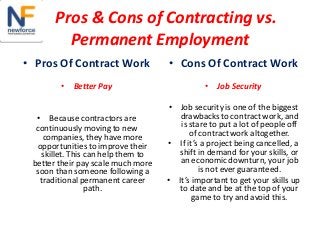
Manager planning describes the process through which an organization determines how it will distribute its resources and reach its goals. It starts with the identification of goals, ideally with a quantitative component and a qualitative vision. For example, an organization may set an overall goal to increase profits by 20% over the next twelve years. Once the goal is established, the next step in the process of distributing resources the most efficiently.
Job description for manager planning
A planning manager is responsible for coordinating the procurement of supplies, inventory and equipment for a company. He or she can also attend trade shows and negotiate prices with suppliers. A manager with this title should have relevant work experience and a Bachelor's Degree. Other responsibilities include generating reports about new programs and overseeing general planning issues.
Planning managers are known for their creativity, organizational skills and interpersonal skills. They also develop and maintain a performance-planning charter and change management programs. They coordinate with sales teams to ensure great customer service and communication.

Types of Manager Planning
Four types of management planning are available. Top-ranking managers plan the company’s long-term strategies, and monitor employee progress. The resource allocator manages the company's capital, people, and materials. The disturbance handler predicts potential conflicts and creates strategies to address them. In addition, he/she helps the company recover after unexpected events.
The operational plan, on the other hand, deals with the day-to-day operations of a company. It may be used for one-time purposes or it can be an ongoing plan that specifies rules and regulations to help achieve objectives. Additionally, it might include a contingency planning for an unexpected scenario.
Process involved
There are a number of steps involved in managing organizational planning. The first step in this process is determining the objectives that will be met by the organization. An organization will typically choose between two sets objectives, one short-term and one long-term. These objectives should clearly be defined and stated from the beginning of planning.
The second step involves measuring progress and analyzing the results. This is vital to ensure that the organization is on course. Managers need to evaluate the progress made against these goals, and make any necessary adjustments to ensure that their plan is successful.

Manager planning: Limitations
Manager planning is an integral part of managing, but there are limitations. Managers who understand these limitations will be able to improve their planning effectiveness. Planning requires establishing the premises to guide decisions. It is impossible to determine these premises with absolute accuracy, so there is always some margin of error. The difficulty in assessing these properties is one of the biggest limitations to manager planning.
External factors can also significantly hinder the process of planning. For example, sudden changes in the political landscape may affect business decisions. The ability of companies to plan can be affected if they are subject to union pressures for wage increases. Other constraints include taxation policies or financial institutions. The freedom of a manager may be restricted by work regulations. These rules may prevent a manager from making changes necessary for the success of the enterprise.
FAQ
Why would a company pay a consultant?
Consultants provide expert advice on how to improve the performance of your business. They don't sell products.
A consultant assists companies in making better decisions by offering sound analysis as well as suggestions for improvement.
Senior management teams often have consultants working closely with them to help them understand their needs.
They offer leadership coaching and training to help employees reach their full potential.
They may be able to advise businesses on ways to cut costs, improve efficiency, and streamline processes.
How much do consultants make?
Some consultants make over $100k per year. However, most consultants only make $25-$50k. The average consultant salary ranges from $39,000 to $39,000. This includes hourly as well as salaried consultants.
Salary depends on industry, experience, location, and type of contract (contractor vs employee). Also, whether the consultant is located in their office or remote.
Is it possible that a consultant business can be started from home?
Absolutely! In fact, many consultants already do exactly this.
Freelancers often work remotely through tools like Skype and Trello, Basecamp, Basecamp, Dropbox, and Slack. Many freelancers set up their own office space to avoid missing out on company perks.
Freelancers might prefer to work in libraries or cafés, rather than traditional offices.
Others choose to work at home because they love being with their children.
Of course, working from home has its pros and cons. But if you love your job, it's definitely worth considering.
Statistics
- According to statistics from the ONS, the UK has around 300,000 consultants, of which around 63,000 professionals work as management consultants. (consultancy.uk)
- 67% of consultants start their consulting businesses after quitting their jobs, while 33% start while they're still at their jobs. (consultingsuccess.com)
- Over 62% of consultants were dissatisfied with their former jobs before starting their consulting business. (consultingsuccess.com)
- Over 50% of consultants get their first consulting client through a referral from their network. (consultingsuccess.com)
- "From there, I told them my rates were going up 25%, this is the new hourly rate, and every single one of them said 'done, fine.' (nerdwallet.com)
External Links
How To
How Do I Find A Good Consultant?
Understanding your needs is the first step to finding the right consultant. Do you want them to help you improve your website's performance? You may want them optimizing your site to rank higher for search engines. Maybe you are looking for someone to point out any problems with your current web host. Once you know what type of services you need, you should start looking at different companies. While there are many consultants that claim to be able provide these services for you, not all of them will. How can you pick the right one? Here are some things to consider when picking a consultant:
-
Get recommendations. This is probably the best way to choose a consultant. Because you are likely to pay too much, you shouldn't hire someone who you have never heard of. However, you don't want work with someone who has a bad reputation. If you are lucky enough to be referred by people you trust, that's awesome! However, even if this is not possible, you might still be able check reviews online. You can find testimonials and case studies from clients who have used your service.
-
Ask around. Many people are not aware of the benefits of hiring a consultant. They believe that because they're doing well, they don’t need to make any changes. However, this is usually untrue. Even if you are seeing great results, it is likely that you have not been keeping up to date with technology and trends. You'll lose out on the opportunities to grow your company if you rely on old methods. It's always worth asking around to see if anyone knows of a good consultant.
-
Verify their qualifications. When you're looking for a consultant, it doesn't matter whether you're building a small blog or launching a multi-million dollar eCommerce store; you want to be sure that whoever you hire has the skills needed to handle your project. It doesn't matter if they are qualified for the task or not; make sure they are knowledgeable in the field.
-
Find out which projects they are best at. This is false. You may need to have specific training or education in certain areas. For example, if you need someone to build a WordPress theme, you won't want to hire a developer who specializes in Drupal. Graphic design and programming languages are all subject to the same rules. Ask what projects they usually work on.
-
Be aware of their fees. You don't want a consultant who charges too much. You also don't want too much. Consultants come in many sizes and shapes. There are some that charge an hourly fee, while others may bill per job. Knowing exactly what you're paying upfront will save you money down the road.
-
What do they offer? Are they available for free consultations They will be able to offer you guidance on setting up your own system. Can they guarantee your site will rank higher if you work with them? You have the right to cancel at any time if you aren't satisfied with what was said during your consultation.
-
Also, ask if discounts are available for multiple months and years. Many consultants offer extended discounts for long periods. Even though you do not necessarily have to commit to a whole year of service, you might still be able to benefit from any specials they offer.